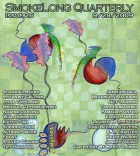Steven, you have created a world of family strain and love in your gorgeous flash “Good Friday”. The relationship between the father and daughter is made so real, you pull this off in such a short window. Can you talk about the last line—(“Daddy,” she says, “don’t you believe in me?”) What is this child really asking here?
The last line (“Daddy,” she says, “don’t you believe in me?”) stirred up some controversy among the first readers of this story. One said it was too cute, just a “kids say the darnedest things” kind of story. Another said it was perhaps too coy, and would be improved as “do you believe in me?” instead of “don’t you believe in me?”. But the one thing that was consistent was that people got stirred up by the last line. Everybody had an opinion.
In the first draft of the story, I had written the line as “don’t you believe me?” That didn’t feel right, and I eventually realized that I was avoiding “believe in me” because it made me uncomfortable. Believing something and believing in something are utterly different things, of course, especially in this context, where the little girl is playing out her own version of the resurrection story.
Ultimately I left the line as it appears, precisely because it seems to rattle people a little. Why does she say it that way? And what is the father supposed to answer? He’s clearly a cynic; perhaps the line is a test of his cynicism. How does he respond? I don’t know. But I like thinking about it.
Richard Ford (a writer that you remind me of) talks about how potent holidays are for story settings, for unsettling feelings to come to the forefront The eternal let-down factor.
Holidays present good settings for stories, no doubt. Holidays bring family members together (with all their simmering conflicts and rivalries), they provide a bushel basket of connotations and prepackaged emotion and sentiment for a writer to play off, they even provide settings and weather and goofy costumes. I’ve written stories about Thanksgiving, Christmas, and the Fourth of July, as well as this one about Easter. Maybe I’ll do Flag Day next.
Can you tell us about the the experience of having your work read by an actor on stage? What was that like to have a story chosen for Texas Bound, part of Arts & Letters Live, a program of the Dallas Museum of Art?
That was the coolest thing ever. Barry Corbin, who played Maurice Minnifield on Northern Exposure (among a thousand other things), read my story “Western Wear” as part of the Texas Bound program in 2007. To see and hear a real actor, somebody actually famous, read my story on stage before a filled auditorium of paying customers, was… I hate to use the word, but it was highly “validating.”
It also taught me why you should always read your stuff out loud before you send it off. There were a few clanky phrases and word choices that I would certainly have changed if I had realized how they sounded out loud.
What writers do you love (currently)? What authors do you return to?
Recent reads that I enjoyed include Denis Johnson’s Jesus’ Son (don’t know why it took me so long to read that one), Things Kept, Things Left Behind by Jim Tomlinson, and The Brief Wondrous Life of Oscar Wao by Junot Diaz. I return to the modern short story masters: Tobias Wolff, T.C. Boyle, Raymond Carver, Flannery O’Connor, Alice Munro, among others. I don’t get very far off the main roads in my reading, I admit. So many books, so little life.
You have a great ear for dialog.—any suggestions? This is an area many writers find challenging—making dialog real and not self conscious… letting the characters breathe.
I don’t overthink it. I just try to write what I hear the characters saying. I play the movie in my head and listen. Sometimes I borrow lines from real life, but not often. I probably spend too much time having imaginary conversations.
If I were giving advice, I’d say try to mimic the way people actually talk, but not too much. It’s easy to let your characters become too conversational, have too many uhs and ahs and y’knows, use too many figures of speech and cliches that are part of normal chatter. A cliche is still boring, even if it comes out of an interesting character’s mouth. And remember that subtext is king. What isn’t said is usually the most important part.



 The SmokeLong Grand Micro Contest (The Mikey) is now an annual competition celebrating and compensating the best micro fiction and nonfiction online.
The SmokeLong Grand Micro Contest (The Mikey) is now an annual competition celebrating and compensating the best micro fiction and nonfiction online.